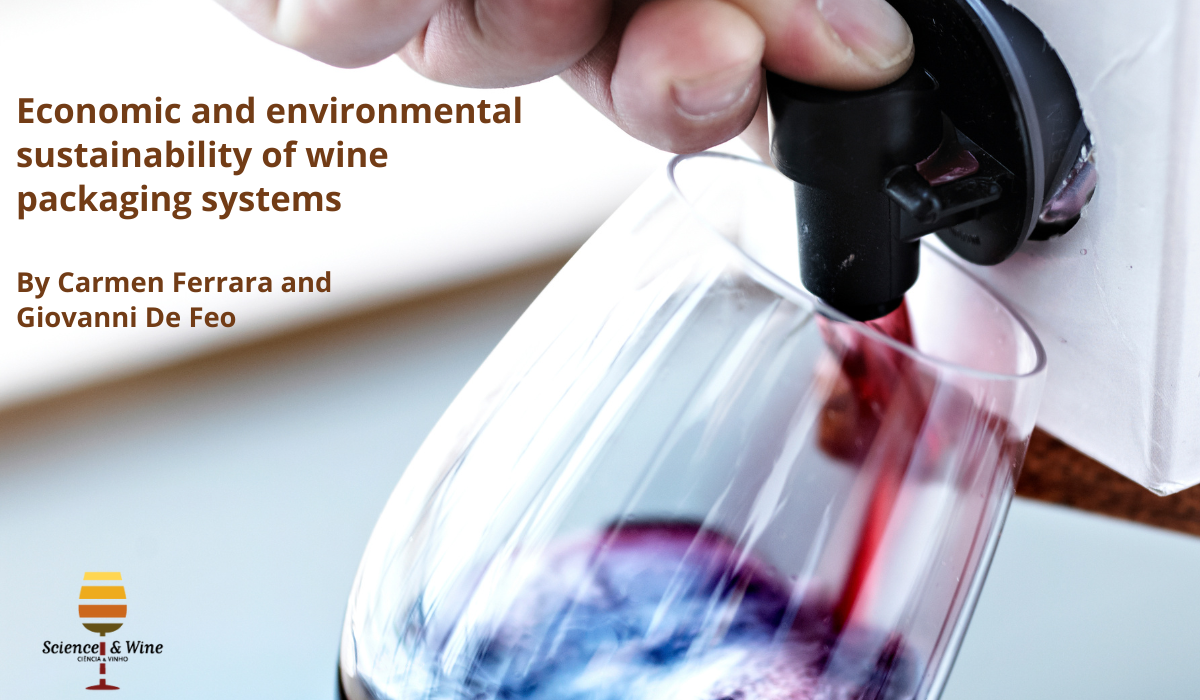By Carmen Ferrara and Giovanni De Feo
Nowadays the sustainability evaluation of the industrial products is essential to promote solutions that allows to minimize their environmental pressure.
However, the sustainability assessment should take into account both environmental and economic aspects which should be integrated. This goal can be reached adopting the comprehensive approach oriented to Life Cycle Thinking (LCT) through the combined use of the Life Cycle Assessment (LCA) and Life Cycle Costing (LCC) methodologies.
LCA is one of the most used tools for the environmental sustainability evaluation of alternative systems allowing to taking into account the environmental impacts that can occur during the life cycle stages of the compared systems; while LCC is a method used for the economic sustainability assessment allowing to calculate the sum of the costs incurred over all life cycle of the systems.
Adopting LCA and LCC methodologies the sustainability of the most used wine packaging alternatives in Italy (aseptic carton, bag-in-box, glass bottle and PET bottle) was assessed in order to identify the best packaging solution from both an environmental and an economic point of view. For each type of packaging system, the different sizes of the main containers were considered and the functional unit (FU) for the systems comparison was defined as all the packaging needed for 3 l of wine (Table 1).

Table 1. Type of wine packaging systems with the containers size and number of units required for the packaging of the wine volume considered for the function unit (3l).
The environmental impacts of the systems were estimated with the adoption of ReCiPe 2016 (H) evaluation method using both midpoint and endpoint approaches. The choice of this method was performed on the basis of its holistic approach that allows to consider eighteen impact categories in the midpoint level and three damage categories in the endpoint level.
The economic sustainability assessment of the compared packaging systems was performed adopting the life cycle costing approach, considering the same functional unit, system boundaries and assumption considered in the LCA.
The economic impact of the systems was calculated as the sum of the costs due to: (i) extraction of all raw materials; (ii) raw materials processing; (iii) packaging components production and assembly; (iv) end-of-life phase of all packaging components.
For most of the packaging systems there was a consistency between the LCA and LCC results.
The size of containers was one of factors that influenced the most the sustainability assessment of the systems. In compliance with the circular economy principles, using larger size containers, we can reduce the raw materials input, and this entails a lower quantity of packaging materials to be produced, but also to be transported, and disposed of.
The second key factor was the recyclability of the packaging material; higher recycling rate implies higher environmental benefits and economic revenues due to the valorisation of the secondary raw material produced. However, the effect of the containers size on the results was more important than the recycling effect.
In fact, the best wine packaging solutions both in economic and environmental terms were those with less weight and larger containers as the systems of aseptic cartons, Bag-in-boxes and PET bottles of 3l size, while the glass systems were the less sustainable alternative because of the high consumption of material resources and energy in the production phase.
Due to the holistic approach adopted, the combined use of LCA and LCC proved to be one of the most useful tools to push toward more sustainable solutions, in compliance with the circular economy goals.
These findings are described in the article:
Ferrara, Carmen; Migliaro, Valeria; Ventura, Francesco; De Feo, Giovanni (2023). An economic and environmental analysis of wine packaging systems in Italy: A life cycle (LC) approach. Science of the Total Environment. 857 (159323), 1-10. doi.org/10.1016/j.scitotenv.2022.159323.

Giovanni De Feo is an Associate Professor of Sanitary and Environmental Engineering. He currently teaches Industrial Ecology at the Department of Industrial Engineering of the University of Salerno, Italy. He is the creator and promoter of the ‘Greenopoli’ environmental education project. In 2018 he received the Italian Environmentalist of the Year Award.

Carmen Ferrara is a Ph.D. in Industrial Engineering and research fellow at the Department of Industrial Engineering of the University of Salerno, Italy. Her main research topic concerns the application of Life Cycle Assessment (LCA) to food products, food packaging, solid waste management and wastewater treatment systems.

